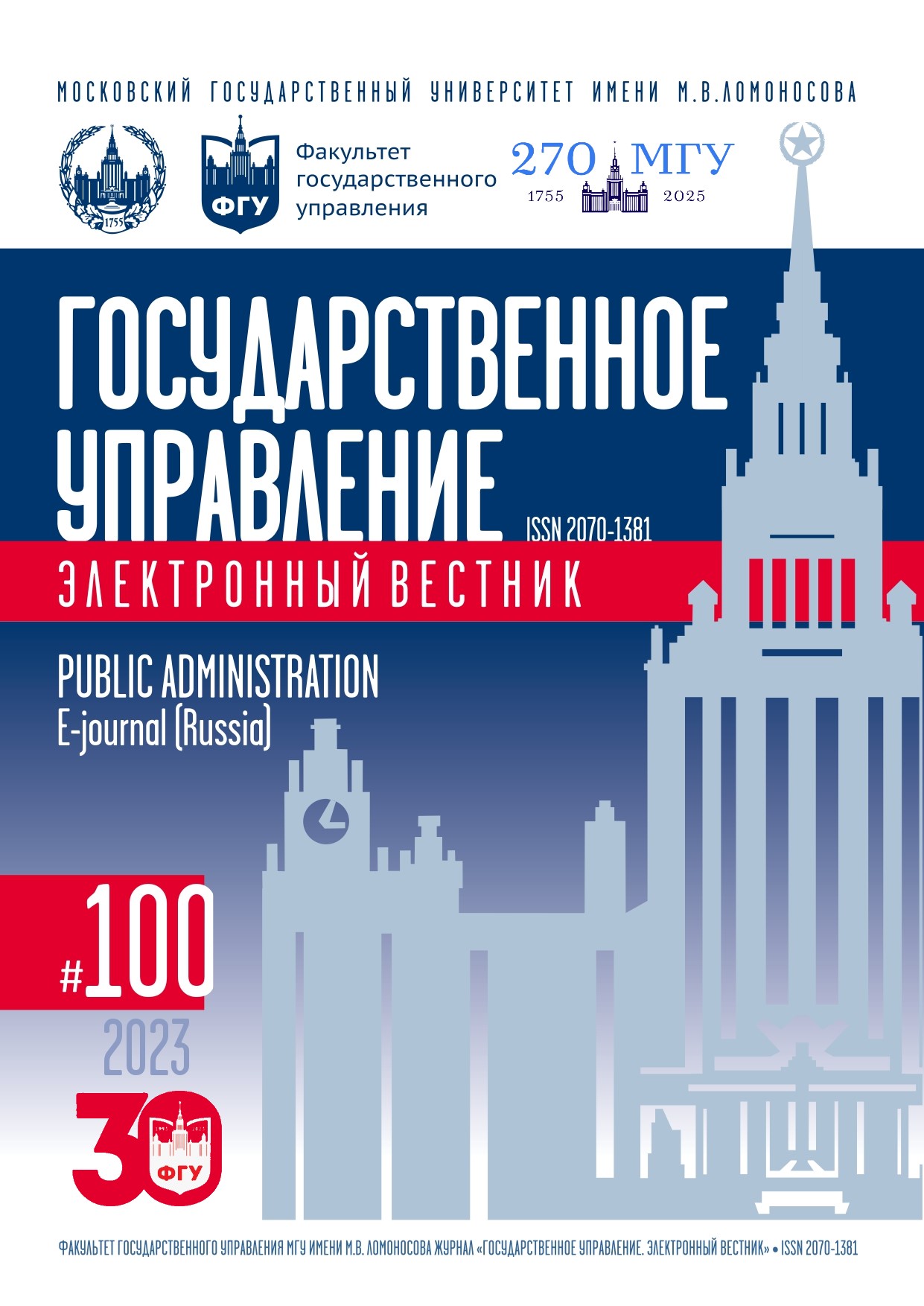Representation of “Russian threat” in Military Documents of Unfriendly Nuclear States
Keywords:
Security, Great Britain, military-doctrinal document, “Russian threat”, Russia, strategy, USA, France, nuclear threat, nuclear weaponsAbstract
The aim of the article is to characterize the essential content of the «Russian threat» in the military-doctrinal documents of unfriendly nuclear states. The basis of the methodology is PEST-analysis with the rationale for adding a military aspect to it. A qualitative analysis of the content of military-doctrinal documents is based on a frequency-ranked linguistic analysis, which is preceded by lemmatization. In addition to the traditional tabular presentation, cloud data provision has been applied. Based on the target settings, documents of three unfriendly nuclear states were selected for analysis: Great Britain, the USA and France. On the basis of the proposed methodology, the military doctrinal document of Great Britain was analyzed. All the highlighted aspects are present in the studied document. The biggest one is the political aspect. The leadership of this state assigns a significant place to the social context of threats from Russia and emphasizes the importance of the information factor in UK politics, especially disinformation. In the military-doctrinal document of the United States, it was possible to isolate all the indicated aspects. The largest in volume is the political aspect. In the resulting lemmatized series of the document under study, it is worth highlighting the phrase from the most frequently occurring words that characterizes «Russia as a nuclear threat». The resulting phrase allows us to conclude that the American military-political leadership considers Russia as a nuclear threat. Russia is not excluded by the Americans from the list of potentially threatening the American nation with weapons based on cyber-, bio-, chemical- and missile means. Analyzing the French document, we note that it contains all aspects, with the exception of the economic one which means that, according to the views of the French leadership, Russia does not pose a significant economic threat to France. The largest in volume is the political aspect. The analysis carried out allows us to conclude that the French side does not exclude the nuclear threat from Russia. The final conclusions on the article are made based on the developed methodology.
References
Белозёров В.К. Политический феномен военной деятельности. М.: Издательский дом «АТИСО», 2009.
Бессуднова М.Б. «Русская угроза» в ливонской орденской документации 80-х и начала 90-х гг. XV в. // Studia Slavica et Balcanica Petropolitana. 2014. № 1. С. 144–156.
Заботкина В.И., Позднякова Е.М. Репрезентация концепта Counteraction в социально-культурном контексте глобальной угрозы // Вопросы когнитивной лингвистики. 2020. № 4. С. 33–42. DOI: 10.20916/1812-3228-2020-4-33-42
Зверев Ю. Военные учения России и Белоруссии как ответ на активизацию военной деятельности НАТО // Евразия. Эксперт. 2020. № 3–4. С. 13–22. DOI: 10.18254/S271332140013177-1
Колесниченко К.Ю. Военный фактор в развитии Дальнего востока России (на примере Приморского края) // Ойкумена. Регионоведческие исследования. 2012. № 3(22). С. 116–125.
Кубрякова Е.С., Демьянков В.З. К проблеме ментальных репрезентаций // Вопросы когнитивной лингвистики. 2007. № 4. С. 8–16.
Ольшевский В.Г. Военная сфера в гуманитарной картине мира, или военная безопасность в системе ценностей современного общества // Система ценностей современного общества. 2010. № 16. С. 32–36.
Серова И.Г. Концептуальный анализ в лингвокультурологии: методы и возможности // Вопросы когнитивной лингвистики. 2007. № 1. С. 15–22.
Цыбаков Д.Л., Василенко И.К. Милитаризация постсоветской Украины как фактор современного международного кризиса // Гуманитарные науки. 2023. № 13(3). С. 72–78. DOI: 10.26794/2226-7867-2023-13-3-72-78
Åselius G. The “Russian Menace” to Sweden. The Belief System of a Small Power Elite in the Age of Imperialism. Stockholm: Almqvist & Wiksell International, 1994.
Eastwood J. Rethinking Militarism as Ideology: The Critique of Violence after Security // Security Dialogue. 2018. Vol. 49. Is. 1–2. P. 44–56.
DOI: 10.1177/0967010617730949
Fujiwara K. Imagining the Past: Memory Wars in Japan // Policy and Society. 2006. Vol. 25. Is. 4. P. 143–153. DOI: 10.1016/S1449-4035(06)70096-0
Gani J.K. Racial Militarism and Civilizational Anxiety at the Imperial Encounter: From Metropole to the Postcolonial State // Security Dialogue. 2021. Vol. 52. Is. 6. Р. 546–566. DOI: 10.1177/09670106211054901
Nilsson S. Rysskräcken i Sverige: Fördomar och verklighet. Örebro: Samsprek, 1990.
Oredsson S. Svensk oro: offentlig fruktan i Sverige under 1900-talets senare hälft. Lund: Nordic Academic Press. 2003.
Оssipova А.А., Мichinа О.V., Pozdnjakova N.V. Repräsentation der Konzepte Russland und Deutschland in den Publitistischen Texten// Вопросы когнитивной лингвистики. 2016. № 3. С. 34–41.
Ropponen R. Die russische Gefahr. Das Verhalten der öffentlichen Meinung Deutschlands und Österreich-Ungarns gegenüber der Außenpolitik Russlands in der Zeit zwischen dem Frieden von Portsmuth und dem Ausbruch des Ersten Weltkriegs. Helsinki: Forssan Kirjapaino, 1976.

